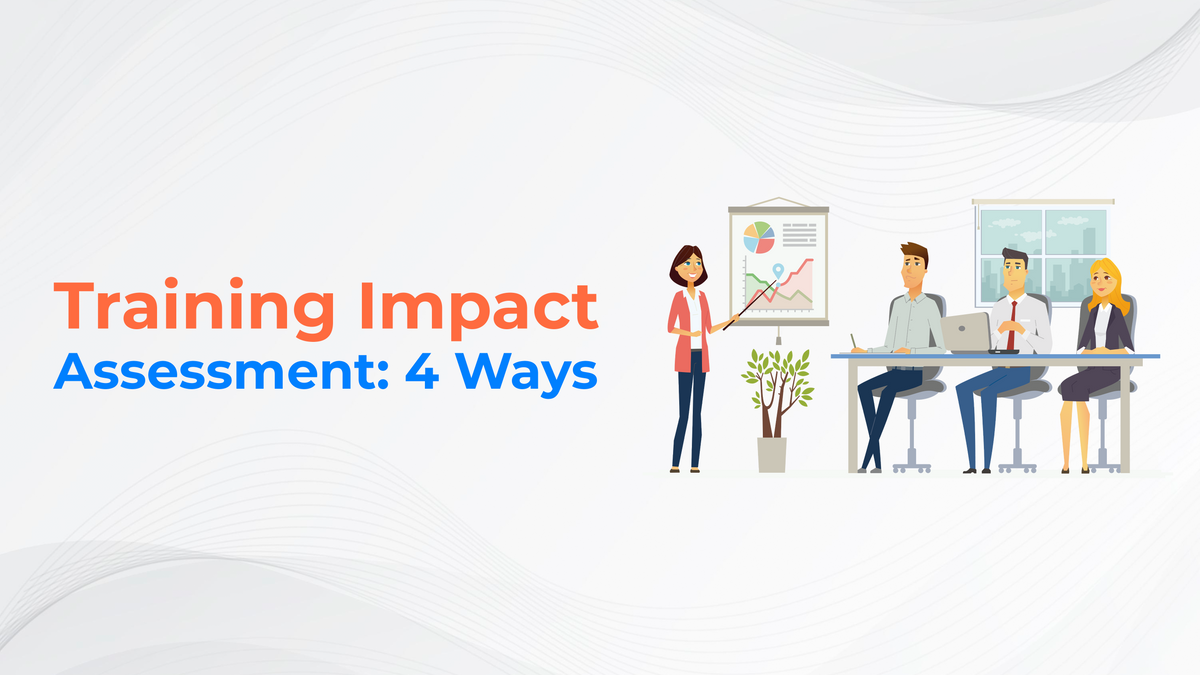There are many ways to measure the training impact of an organization. One common way is to look at how much employees change their behavior as a result of the training. In this article, we'll discuss four ways to measure training impact.
Understanding Assessment
Assessment in Learning Management Systems (LMS) involves identifying and assessing student learning outcomes. This process can be used to improve the effectiveness of learning activities in LMS, measure student progress, and identify areas for improvement. Assessment in LMS can be done manually or automatically. Manual assessment is done by an instructor or administrator who reviews individual assignments or tests to determine student success.
The automated assessment uses software to score and report on student performance. There are several types of automated assessment that can be used in LMS: formative assessment, summative assessment, feedback loop assessment, and instructional evaluation. Formative assessment provides feedback on learning processes early in the program so students can improve their skills. Summative assessment is used to determine whether students have learned the material and achieved the expected outcomes.
Way 1: Surveying Participants
The first step in designing an effective learning management system (LMS) is surveying the participants in the system. This can be done through a variety of methods, such as focus groups or interviews. By understanding the needs and wants of the users, developers can create a system that meets everyone’s needs.
When surveying participants, it is important to keep in mind their age, experience level, and job function.
Additionally, it is important to ask questions that will help developers understand how users are using the LMS. Questions such as “How often do you use this feature?” and “What were some of your favorite features about this interface?” can help developers create a user-friendly LMS.
Way 2: Interviewing Leaders
As a business owner or leader in an LMS, it is important to be able to identify and interview potential candidates for key positions. To do this effectively, it is essential to have a strategy and approach for conducting interviews. This article will outline some ways to help you get started.
Take inventory of your current leadership team and identify the qualities that are most important to you. After that, create job descriptions that reflect these qualities. Be sure to also consider the skills and experience necessary for the position. Once you understand what you are looking for in a candidate, start interviewing individuals who match those qualifications.
Be prepared with questions that will cover both the job requirements and the individual’s qualifications. It is also beneficial to ask them how they would handle specific situations at work or in their personal life.
Way 3: Reviewing Records
Make sure that all of your records are accessible through your LMS. This includes everything from customer data to employee performance data. If you can't find the information you're looking for right away, try using search engines or keyword searches.
Next, use LMS features to help you review your records. For example, create charts and graphs to show trends over time. Or use dashboards and reports to see how different departments are performing. Finally, be sure to take action based on the information in your records.
Way 4: Evaluating Results
When it comes to evaluating the results of an online learning management system (LMS), there are a number of factors to consider. These include how well students are tracking their progress, how engaged they are with the course materials, and how much time they are spending in class. In addition, it is important to take into account any feedback students provide about the materials or instructor. By understanding these factors and how they impact student success, educators can make informed decisions about whether or not to maintain or update their LMS.
To Conclude
Training impact assessment is the process of evaluating the effectiveness of training programs in achieving desired outcomes. It can provide benefits like identifying areas of improvement, determining ROI, improving training effectiveness, and enhancing employee performance. BrainCert's online assessment platform can help organizations conduct assessments, design quizzes and exams, automate grading and generate detailed reports, align with specific training objectives, measure the programs' effectiveness and facilitate remote proctoring. This platform can help organizations achieve their training impact assessment goals efficiently.










